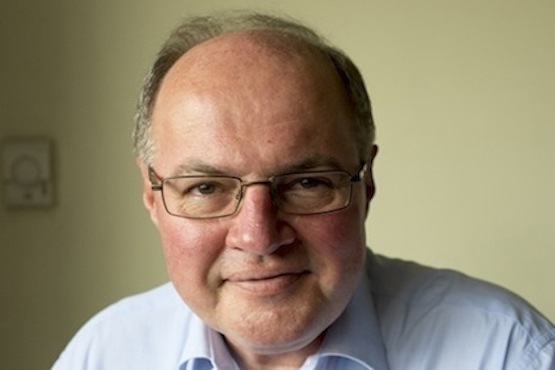
Joseph You Guo Jiang's timely essay on the church in today's China may annoy some but it asks all the right questions
Updated: June 08, 2017 04:42 AM GMT


In my job running ucanews.com I do a lot of reading, editing, proof-reading and rewriting for publication. Often enough, I do some writing when I have something to say, as a commentary on some issue or personality that has public appeal.
Commentaries in the media are often one person's contribution to a conversation he or she is having with other commentators.
Then, once a while, someone actually makes a contribution which, to use a sporting metaphor, "shifts the goal posts." This means that everyone on your team has been focused on scoring a goal, or a try, by heading in one direction, believing that scoring points will be accomplished if we aim in a particular direction.
Then someone explicitly or implicitly says: "You've got it wrong, that's not the direction to head for. Here — somewhere else — is where you should be heading to get the points."
That's what Joseph You Guo Jiang has done with his commentary "Catholicism in 21st Century China" on the challenges and opportunities for the church in China — a church in China with Chinese characteristics — in the latest English edition of La Civilta Cattolica.
He has broken open the all too familiar box that has trapped considerations of the church in China — politically weighted interpretations that draw on the Cold War for their terms of reference. Instead, Jiang looks at the church in China as it really is: a church facing — or failing to face — its pastoral context and challenges, opportunities; its resources or lack of them, for the mission and evangelization that are actually at hand.
Jiang won't make many friends among those trapped in the increasingly fusty old China box. They are mostly commentators and observers looking into China and living far away from its actual experience or those unable to see past their own treatment at the hand of the Chinese Communist Party. But where he will attract interest is from people who know what it is really like living at the pastoral coal face.
The author takes for granted something that previous generations of both Chinese and foreign Catholics — bishops, laypeople, foreign missionaries, "expert commentators" and some Vatican officials — found difficult, almost impossible to accept: that China is (and pretty well always has been) a totalitarian society. This time it happens to be controlled by the Communist Party, which isn't going to disappear any time soon.
And for some reason, we have fallen into the Chinese trap of "exceptionalism." The church deals with scores of other authoritarian and totalitarian regimes yet it has treated China differently. Jiang is telling us that it is not any different to anywhere else, to any other dictatorship in Asia, or Africa or Latin America.
What will upset some readers of this piece is the way the author acknowledges in conventional but not compromising ways just what the context of the PRC is so he can get past that and onto the real issues the church faces in China for which he has some, very logical and often straightforward ideas.
He takes for granted that the church operates in a totalitarian society and polity. The church always has in China. But the real issues are not political.
Rather, the problems are those quite familiar to Catholics outside China: a clergy out of touch with its people, an inert and unresponsive laity, a culture driven by greed and technology where proposing self-sacrificial love as a way of life is "for the birds." Readers will recognize that these are the very issues at the center of Pope Francis' ministry. Jiang asks what is to be done about these realities in the PRC where the vocations previously attracted to a church and an ecclesiology that is pre-Vatican II have dried up as China unfolds much as Western societies that get rich have? They become greedy, acquisitive and selfish.
How do Catholics speak of love, Christ's death and resurrection, prayer and the Eucharist in a culture that is inimical to self-sacrifice yet at the same time spiritually starving, absorbed in accumulating wealth and being seen to be successful yet aching in the hope of relationships and a meaning and purpose to life?
How do Catholics build faith communities in a society that has witnessed an incredibly rapid process of urbanization over the last 35 years? How does the church — which needs existing human communities to build faith communities — respond in a society that is atomizing rapidly as urbanization takes its toll, in the same way that it has in communities throughout the world?
In that context, Jiang is implicitly asking "Can't we get beyond Cold War ways of viewing prospects for Catholicism in China?" And he says yes. He asks that we engage with the reality and he suggests that there are things to focus on: training lay leaders to communicate the faith and lead faith communities, take social media seriously as the glue holding post-modern societies together such that they also become channels for sharing the faith, making even better use of the existing reservoir of well-trained theologians and scripture scholars to enrich the Catholicism of a Chinese community that has mostly settled for a life of Mass and the rosary as defining what being a Catholic is.
These are important questions that a response reaching back to the Cold War and fighting fights of the 1950s in the 21st Century won't address. Jiang won't be thanked for asking them, which is always a sign that they could just be the right questions.
If they are, then the consternation expressed by some over the current Vatican-China discussions about the appointment of bishops in the PRC will be seen in their right context: not selling out to the Communists but as a real concern for the healthy life of the Catholic Church in China. And, after all, that is what the Vatican is for!
I commend Joseph You Guo Jiang's thought provoking article to you and the publication — La Civilta Cattolica — in which it has been brought to the world.
Father Michael Kelly SJ is executive director of ucanews.com and based in Thailand.


